Ayurveda, the ancient medicine of India, offers practical wisdom and insights into the causes and healing of modern depression. Depression can leave us feeling isolated, cut off from relationships and blocked from realizing our full potential. With gentle support, we can begin to restore a sense of wholeness and freedom from anxiety, fear and disturbing emotions. Cultivating a healthy mind, including an awareness of our interconnection with all of life, is central to the practice of ayurveda. All ayurvedic interventions reconnect us to the flow of life energy, so that we can heal and continue on the path of our full potential. Nutrition, herbal medicine and meditation are three main healing practices that attend to the causes of depression and restore the flow of health.
Ayurveda views each individual as an expression of the five elemental qualities of the natural world—air, fire, water, earth and space. Just as the elements are flowing dynamically through the environment, they are also continuously flowing through the channels of our being. The earth element is the nutrients from our food, the water element circulates through our blood, solar light brings warmth and metabolism to each cell and our every breath depends upon the air around us. These elements have distinct qualities that combine within us to create the three primary constitutions or doshas. The doshas are vata (space and air), pitta (fire and water), and kapha (earth and water).
Through understanding the five elements and the three doshas, we can come to recognize our unique, fundamental bio energetic constitution or prakruti. We can gain insight into our tendencies, strengths and weaknesses. With the knowledge of our prakruti, we can begin to place our symptoms into a context.
There are many causes that can imbalance our prakruti and the flow of prana through our mind-body. Ayurveda seeks to understand the whole picture of a person’s life: nutritional habits, digestion, sleep patterns, work, environmental influences, relationships, and sources of stress. Our life experiences and the symptoms of depression reveal valuable information about the underlying imbalance and causes. By determining the cause of depression, we can begin lifestyle changes and practical interventions to heal and restore balance. We can then apply the law of opposites—the principle that opposite energetic qualities bring balance.
For example, when a kapha person has depressive symptoms of sluggishness, cloudy thinking and sadness, then engaging in vigorous movement, eating spicy, warming, foods and herbs, and seeking mental stimulation can be strong medicine. In contrast, a depressed vata person is ungrounded, overstimulated and anxious. A daily routine of resting, meditating, and eating heavy, nourishing foods are essential steps to reduce anxiety, sleeplessness and fatigue. Pitta depression can be seen as irritability, anger and a tendency towards over activity and burn out. This hot pitta depression could benefit from balancing work and activity with leisure and rest. Medicine for pitta would include meditation, moderate exercise and cooling foods and herbs. Verbal and creative expression can also help release the deeper feelings behind the anger and irritablity.
Nutrition for the Mind and Heart
Depression is a sign that we are depleted and need to nourish and strengthen our mind-body. Depletion can be caused by chronic stress, overwork, a stressful experience that has not been fully integrated, toxic foods, harmful eating habits, and over stimulation. Depletion and toxicity go hand and hand. Ama is the toxicity of undigested food and undigested experience caused by disturbed digestive fire or agni. To clear ama, we balance agni. When agni is balanced, digestion improves and we assimilate nutrients deeply into the body’s tissues. When we are clear of ama and our agni is balanced, meals can be medicinal and have a restorative effect on the nervous system, the mind and the whole body.
What we eat, when we eat, and in what state of mind we eat can improve the symptoms of depression and help to heal the root imbalance. When deciding what to eat, Ayurveda suggest foods that have the opposite energetic qualities of the doshic symptoms of depression. For example, a person with symptoms of anxiety, fatigue and insomnia could benefit from eating foods that have nourishing, calming and grounding qualities. Ayurveda provides helpful and detailed lists of foods to balance each of the doshas. When and in what state of mind we eat have a profound and cumulative affect on our state of well-being. When we eat moderately, at regular times, and in a settled and relaxed environment, this has a supportive and healing effect on our digestion, mind and emotions.
Our body and mind need strength and reserves to be able to stabilize moods, calm ourselves down and initiate restful sleep. This inner reserve of strength and vitality, called ojas, is the essence of good nutrition and complete assimilation. Ojas is the underlying strength, immunity and endurance of our body tissues and mind. Without ojas, prana cannot be held and contained and is quickly dissipated. Ojas sustains us and gives us mental and emotional stability, calm and contentment. We must have a reserve of ojas to heal from depression.
Herbal Allies
Like foods, all herbs have energetic qualities and tastes that will balance the doshas and thereby address the underlying cause of depression. Herbs are part of the great wisdom and consciousness of the natural world and they remind us of our wholeness, our interconnection and innate harmony with the macrocosm.
There is a vast pharmocopeia of ayurvedic botanicals and a skilled ayurvedic physician draws upon this wealth in a very precise way to heal the mind. In a more general way, we can integrate herbs into our daily routine to balance digestive fire and nourish the nervous system and other tissues of the body.
Familiar herbs such as ginger, black pepper, thyme, and fennel kindle digestive fire to clear toxins, improve assimilation and bring a sense of spark or vitality to the senses and mind. Botanicals can also help clear the detoxification channels so that assimilation and optimal function of the tissues is greatly enhanced. The three fruit formula, triphala, gently cleanses the GI tract, the liver and also has a rejuvenating effect on the body and mind.
Rejuvenative herbs called rasayanas nourish and strengthen the body’s tissues and help rebuild vitality and resilience to stress. Ashwagandha, shatavari, and gotu kola are examples of important rasayanas that are tremendously nourishing and stabilizing for the nervous system. Rasayana botanicals give us the systemic strength to balance and stabilize our thoughts and moods.
Flowers and aromatic plants are powerful allies in healing depression. Essential oils such as pure rose, jasmine and sandalwood have a direct and potent therapeutic influence on the limbic system of the brain where emotions are processed. We inhale the concentrated oils directly and the scent relaxes, heals, and uplifts the mind and heart. We could say that essential oils bring sunlight, beauty and the prana of the natural world deeply into the heart-mind. The taste and aroma of herbs help to clear ama, balance digestion, nourish the body and evoke states of deep contentment and joy.
Meditation is Medicine
Meditation practice is central to healing imbalances of the heart and mind. With practice, we can begin to settle the mind’s constant activity and expand our perspective of who we are. We can experience universal awareness and come to discover our place in the web of life. Meditation practices work directly on cleansing disturbing thoughts and emotions and help us to cultivate a calm and peaceful or sattvic state of mind.
It seems that we are constantly ruminating about the past, anticipating the future and distracted by external stimulation. We carry the past and the future into our moment-to-moment experience and this distracts us from fully engaging in our lives. This makes it difficult to enjoy and savor what is good and wonderful and drains us of the energy and awareness to change those things that are not working. Meditation helps us to digest and assimilate past experience and cultivate compassion for ourselves and others.
With meditation practice, we are able to reduce and resolve anxiety, restlessness, and fatigue. When we practice returning again and again to the breath, we are learning to stabilize and rest our mind internally and in present awareness. Gradually, we are able to create space in our mind to see the mechanics of depleting thoughts, beliefs and emotions and to let them go. A spacious and stable mind allows us to feel calm and replenished and helps bring balance to our sleep cycles and bodily rhythms. Ayurveda views meditation as an essential health practice to free ourselves from depression. Then, we can experience the full awareness and joy of who we are.
When we begin to feel symptoms of depression, our whole being lets us know that something is off balance. We feel drained of vitality and enthusiasm which limits our capacity to experience our fullest potential. Ayurveda views cultivating mental health as a spiritual path. We can balance the mind through practices to care for the body. And the body is restored and revitalized by our kindness and care for the mind and heart. This allows us to reestablish the flow of healing energy and to feel in harmony with the world around us. When our biorhythms are in sync with the greater biorhythms of the natural world, we feel a deep sense of well-being and life tends to flow.
Gina Mastroluca © 2011 Mokshacenter.com
Resources: Lad, Vasant, Textbook of Ayurveda volume one, 2002 McIntyre, Anne, Herbal Treatment of Children, A Western and Ayurvedic Approach, 2007 Crow, David, Ayurveda and Aromatherapy talk 2010 floracopeia.com




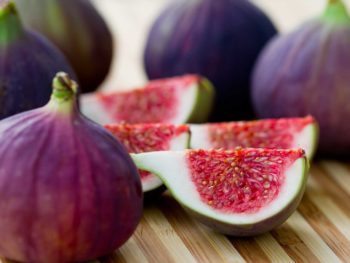
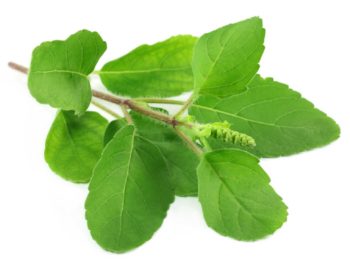




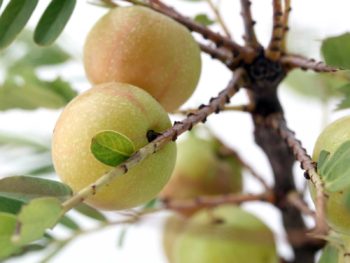
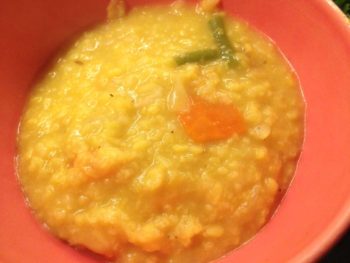
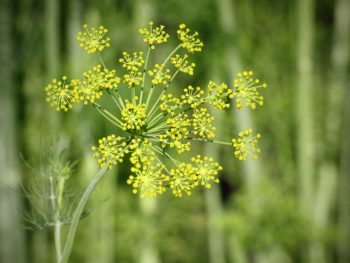
 Living Wisely: How Buddhism and Ayurveda Go Together
Living Wisely: How Buddhism and Ayurveda Go Together





